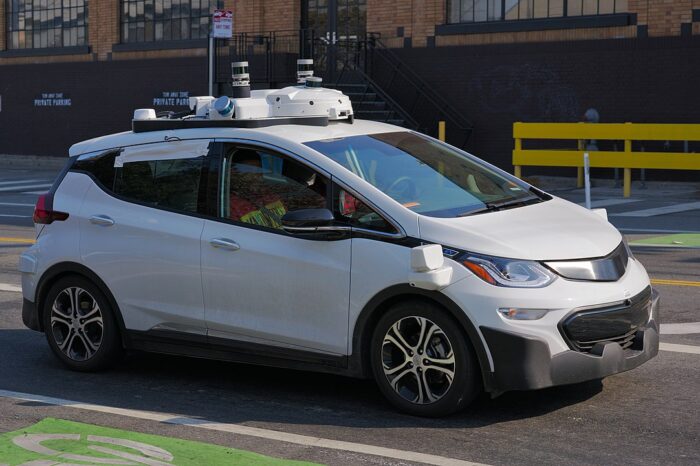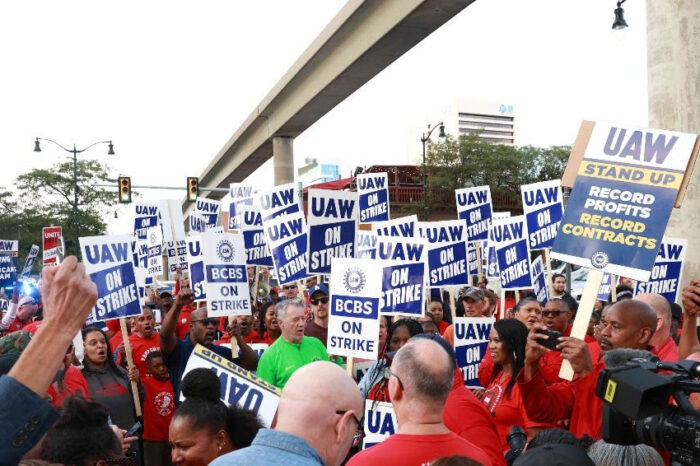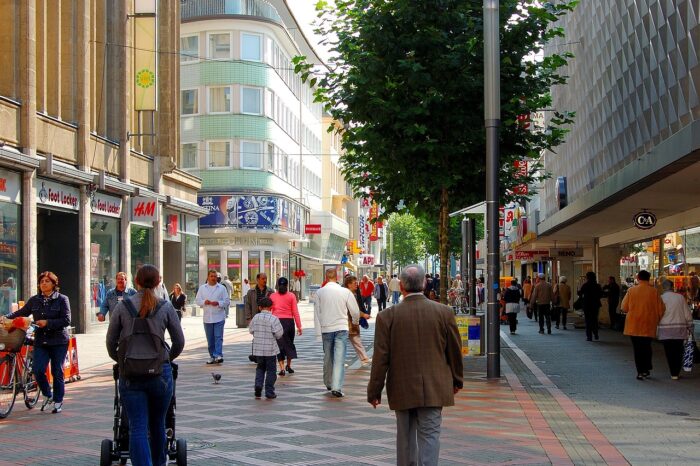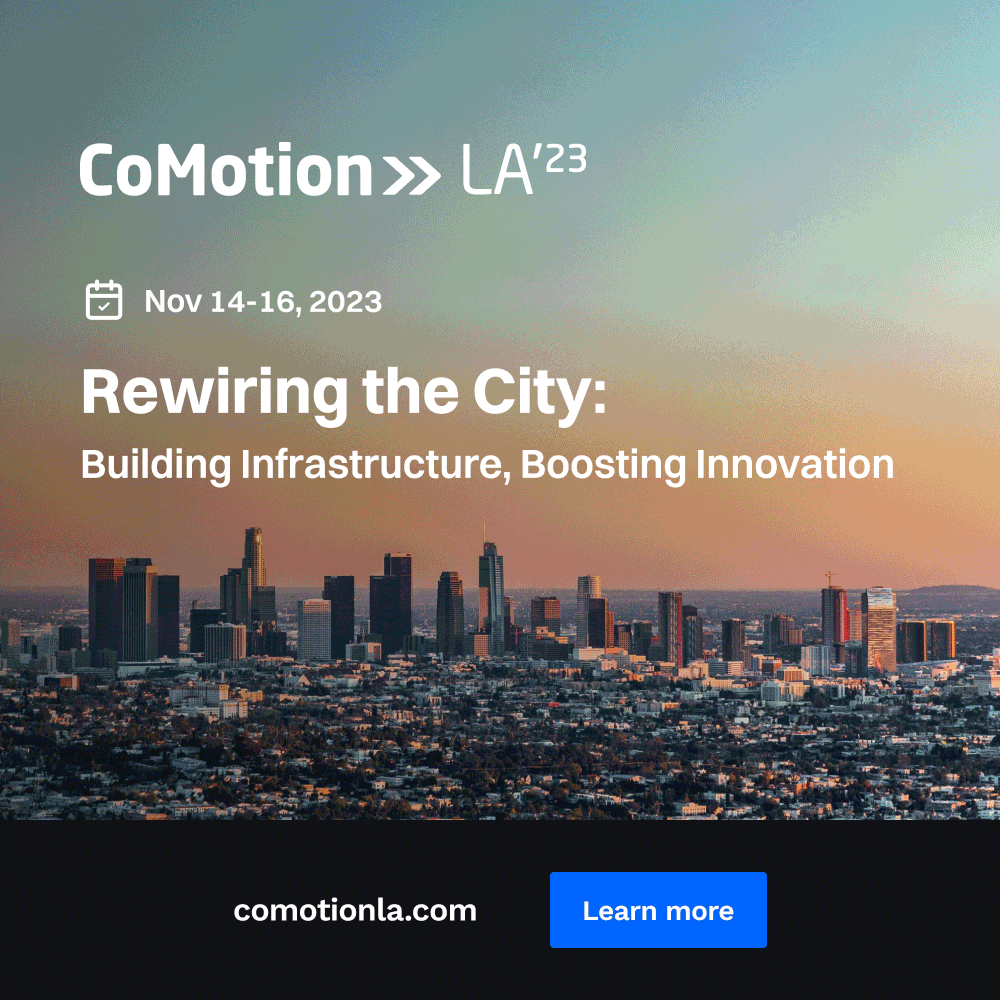CoMotion LA ‘23 kicks off next week! Join us in DTLA and build valuable partnerships, generate leads, and make meaningful connections with over 120+ speakers, 50+ startups, 100+ partners, and be part of our 10+ workshops, and exclusive evening receptions. Get your pass today and learn from mobility’s top minds and innovators from around the world.
The past week is a helpful reminder that mobility innovation depends on politics as much as tech. For instance, local leaders in California are calling on the state to let cities decide whether to allow robotaxis on their streets. And in New York, Uber agrees to pay hundreds of millions to settle a suit brought by that state’s attorney general.
Meanwhile, Austin becomes the latest big city to eliminate parking requirements, Newark approves zoning reforms to allow greater housing density and a greater mix of uses, and Los Angeles is in the midst of a $120 billion public transit investment. These types of YIMBY-style policy changes are key to reducing America’s dependence on single occupancy vehicles. And these are the types of policies that will likely be baked into the new city that a group of billionaires want to build from scratch in Solano County, Calif.
Also: A jury sides with Tesla in a fatal ‘Autopilot’ crash, Canadian helicopter service Helijet embraces eVTOLs, a new study shows Americans are walking much less since Covid, and Joe Biden tells Latin America to consider partnering with America on infrastructure –– rather than China.
![]()
Los Angeles wants its own robotaxi rules: As Waymo continues limited testing in southern California, Los Angeles Mayor Karen Bass says that local leaders, not state regulators, should decide whether driverless cars are allowed on city streets. It was state regulators who gave Cruise and Waymo the greenlight to operate robotaxi services in San Francisco over the vocal opposition of local elected officials. And it was the state that revoked Cruise’s permit last week over safety concerns.
Uber & Lyft settle major NY wage, benefit settlement: The ride-hailing giants agree to pay a total of $328 million (Uber owes $290 million of that) to settle a suit brought by New York Attorney General Letitia James, who accused the companies of withholding pay from drivers. In addition, the companies have agreed to allow drivers to accrue one hour of paid sick leave for every 30 hours worked and to pay into unemployment insurance. The New York settlement is just the latest example of the complicated patchwork of laws that ride-hailing firms are navigating around the world. It is likely that due to its tremendous size and wealth, New York is able to extract concessions from Uber and Lyft that other states and cities would not be able to.
Tesla wins ‘Autopilot’ trial: A jury finds that the EV maker is not liable for a 2019 crash that killed one and seriously injured two when a Model 3 operating on Autopilot drove off the road and crashed into a tree. The jury’s vote was 9-3 in favor of Tesla. A company engineer who took the stand rejected an assertion that the names for Tesla’s driving assistance programs, such as Autopilot and Full Self Driving, would lead customers to believe the cars were fully autonomous.
Subaru adopts Tesla charging standard: Subaru becomes the latest OEM to join the Tesla charging standard.
Austin ditches parking requirements: The Texas capital becomes the latest major city to scrap minimum parking requirements, something that was politically unthinkable just a year ago. Dallas, traditionally framed as the polar opposite of Austin culturally, is also considering reducing or even eliminating parking mandates.
Covid significantly reduced walking: For all of the talk about how the pandemic has affected our travel and work habits –– transit use down, bike use up –– there has been relatively little thought given to its effect on walking. A new analysis by StreetLight Data finds that walking in the U.S. decreased 36% between 2019 and 2022. Depressingly, pedestrian deaths have continued to climb anyway.
Newark approves zoning reforms: New Jersey’s largest city embraces zoning changes aimed at facilitating more housing construction and more commerce in residential neighborhoods. Newark, which languished for decades following massive white flight in the 1960’s and 70’s, has in recent years begun to attract investment and wealthier residents, leading to increases in housing costs.
A big eVTOL milestone in Canada: Helijet International, the long-time helicopter airline based in British Columbia, announces its first purchase of an electric vertical takeoff aircraft: the Alia-250 by Beta Technologies, the Vermont eVTOL manufacturer. The Alia-250 is destined to transport people, but Helijet says it plans to eventually offer both passenger and cargo service via eVTOL.
The promised land has been acquired: The group of billionaires hoping to build a utopian city from scratch in Solano County, Calif., say they’ve finally acquired enough land (53,000 acres) to make it happen.
Biden offers Latin America an alternative to Chinese-led infrastructure: At a gathering of leaders from across the Americas, the U.S. president acknowledged that many of his neighbors have been wooed by China’s massive “Roads and Belts” initiative that has poured billions into infrastructure projects in developing countries. Biden dismissed it as “debt-trap diplomacy,” and urged his peers to consider other partners closer to home for “high quality, transparent approaches to infrastructure and to development.”
Republicans embrace climate projects they voted against: Members of Congress who have decried the landmark climate legislation signed into law by President Joe Biden last year are nevertheless celebrating many of the investments it has brought to their districts. Even the far-right Marjorie Taylor Greene has praised the arrival of a solar panel manufacturer in her Georgia district.
![]()
How did Montreal get transit so cheap? Bloomberg CityLab explores Montreal’s new REM, a 42-mile urban rail line that costs a fraction of what other North American cities have been paying in recent years to build comparable rail systems.
Can LA unwind 70 years of car dominance? Los Angeles is in the midst of a $120 billion investment in public transit. Will it actually get the infamously car-dependent Angelenos to ride the train? There are already some signs of success.
A Brit ponders SUVs: In the Guardian, Andrew Anthony writes about the UK’s increasing embrace of the large SUVs and trucks that have long been favored by Americans. It’s a trend that has drawn scorn –– and, in some cases, vandalism –– from environmental activists and advocates for pedestrian safety. Ironically, increased safety is one of the main appeals of the big vehicles that are leading to an increase in deadly crashes.
Enjoy the Week in Review? Get it delivered directly to your inbox by signing up for the CoMotion NEWS newsletter.





